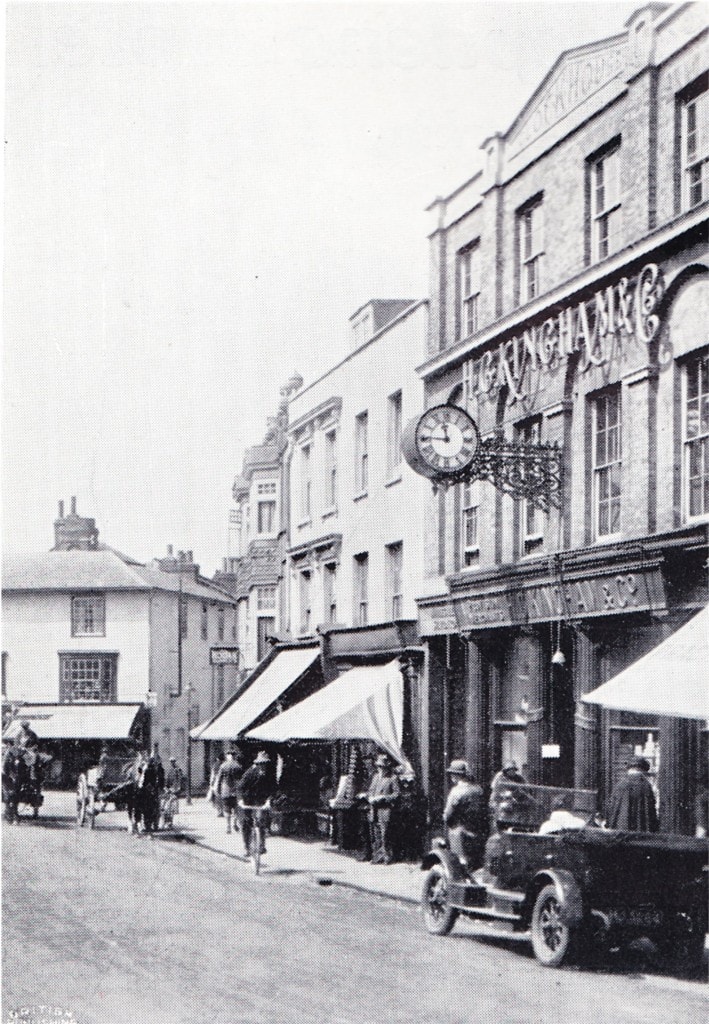
In 1914 Dorking was a market town of 8,000 inhabitants. It had a variety of shops, from feed stores to perfumers, and was lit by gas-lamps.
The surrounding hills were known for their beauty. On weekends and bank holidays thousands came by train to walk and picnic on Box Hill and Leith Hill.
Church and community organisations flourished in town and surrounding villages: the Band of Hope and the Church Army, the Oddfellows and the Ancient Order of Foresters, sports leagues and volunteer fire brigades. Occasions of national celebration – jubilees and coronations – were celebrated with elaborate parades.
Politically the town was conservative on the issues of the day. Imperial clubs flourished and the town had active branches of the national societies for opposing the vote for women. The owners of the estates and mansions which ringed the town controlled much of the land-use in the area, provided funds for local initiatives, and employed large amounts of local labour. When war broke out they would play a significant part in determining the town’s response.
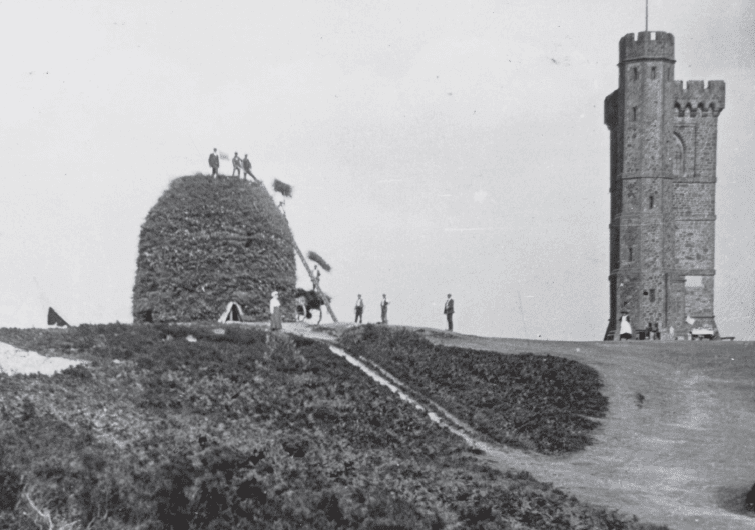
The bonfire on Leith Hill that was lit to mark the coronation of George V in 1911. The hot summer of 1914 saw Germans and Austrians amongst those who climbed the tower to take in the views.
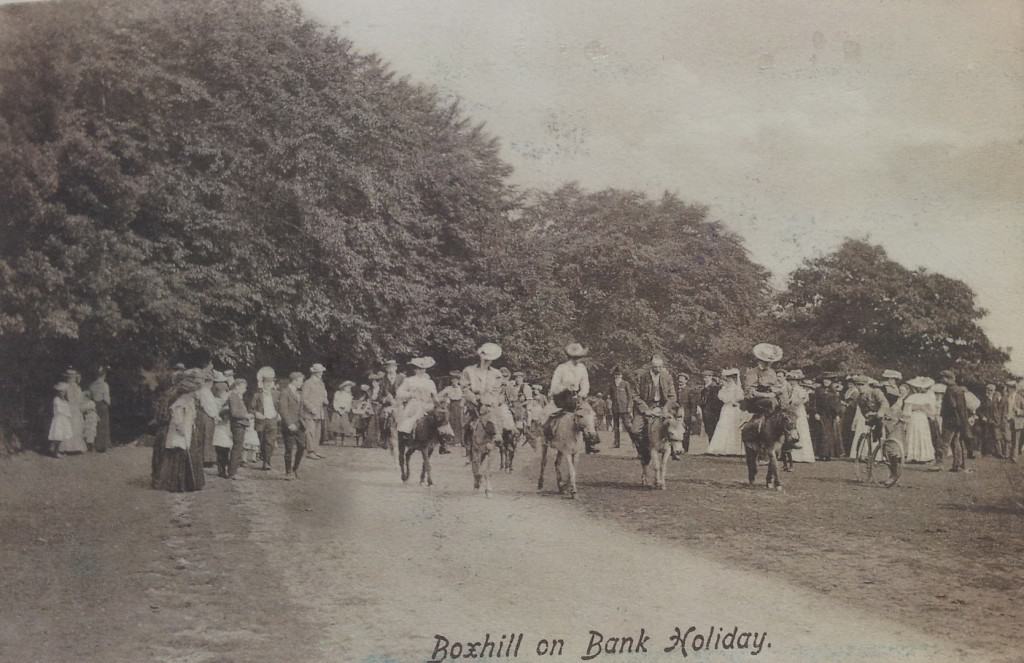
Only months before the outbreak of war the financier Leopold Salomons had bought Box Hill and given it to the nation, securing the town’s importance as a leisure destination.
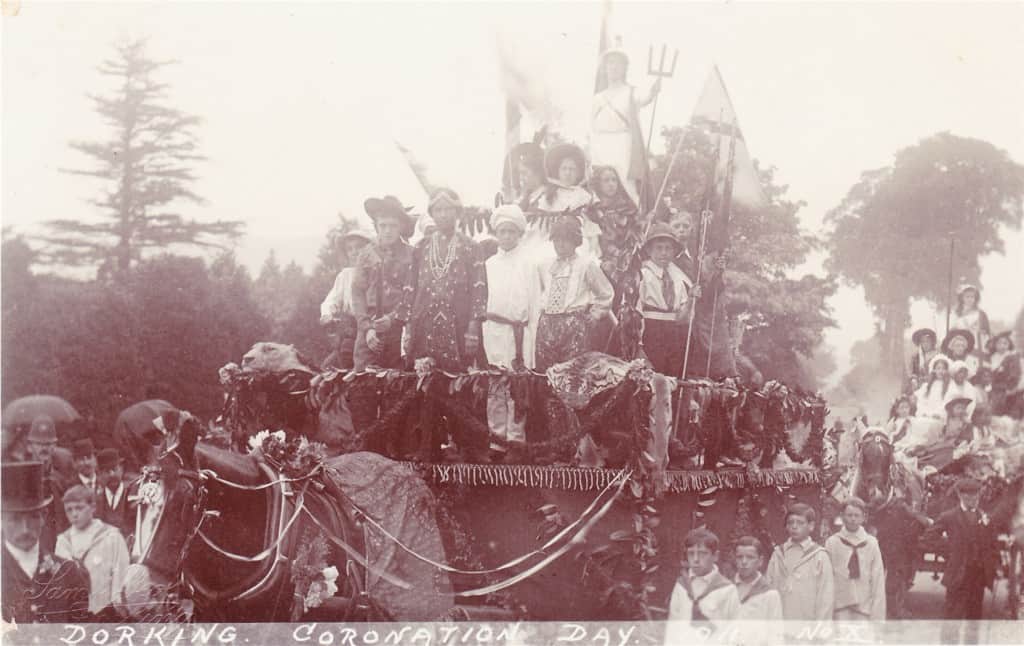
A decorated wagon, depicting Britannia, her navy and her colonies, taking part in the procession for George V’s coronation in 1911.
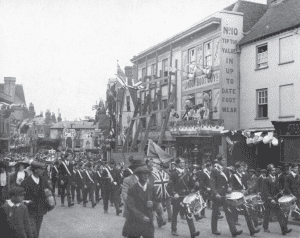
On every occasion of national significance, coronation or jubilee, the town band led participants in fancy dress through a High Street decked in Union flags and red, white, and blue bunting.
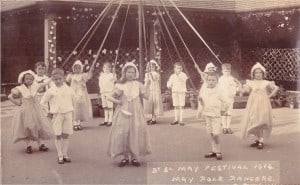
Dorking British School’s May Day celebrations featured traditional English folk dances. Pre-war photographs contrast with those taken in the following years where the war is always an unspoken presence, with Union flags and national colours on display.
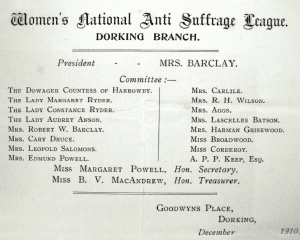
The local branch of the Women’s Anti-Suffrage League was well supported locally, particularly by the well-to-do of some of the mansions surrounding the town. But the district also had an active (non-militant) Women’s Suffrage Society, and in 1913 Betchworth Park Golf Club was attacked by suffragettes who carved V and W into one of the greens.
By the turn of the 20th century many Dorking men were participating in some form of military activity. Prompted by the fears of invasion stirred up by the publication of The Battle of Dorking in the 1870s, George Cubitt of Denbies had provided funds for a Drill Hall just off West Street. A Rifle Club had been formed during the Boer War when civilians were encouraged to take up shooting.
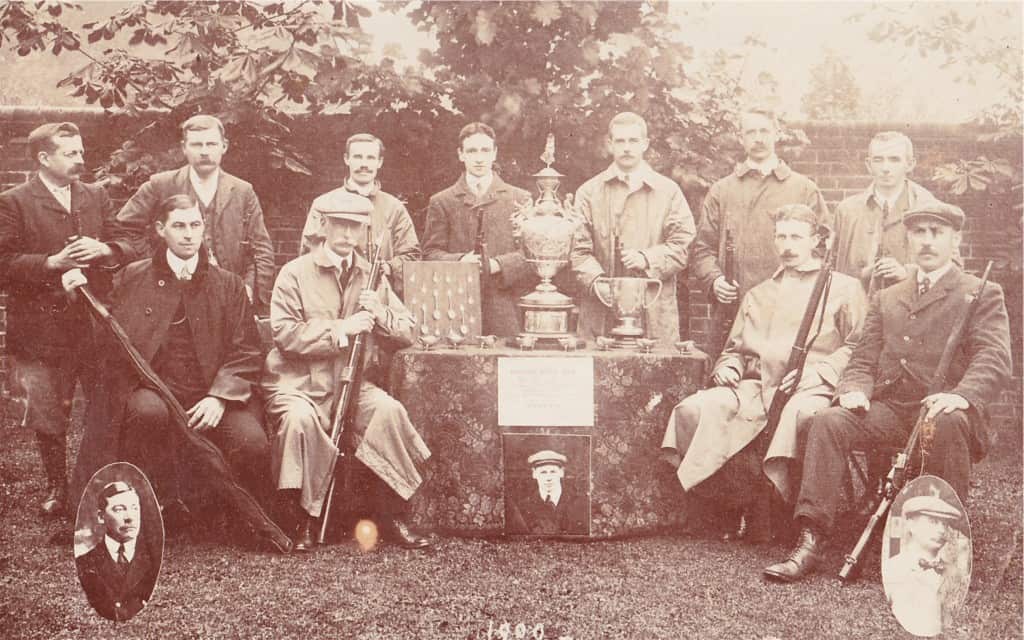
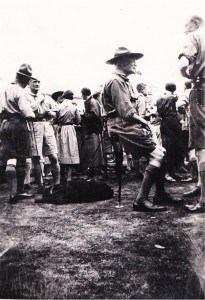
By 1914 Dorking had a company of territorials and a company reservists. But with tensions in Europe running high, civilian organisations also had an eye to the need for military service. Boy Scouts trained in military virtues, school cadet forces conducted field exercises, and school magazines reproduced military poems and praised the ideals of duty and sacrifice.Rifle clubs were encouraged as the ominous political situation in Europe saw government and local authorities considering the need for the citizenry to defend to country. Several of the large estates surrounding the town had their own rifle ranges. When war broke out the High Sheriff of Surrey, Loe Strachey, encouraged rifle clubs to recruit and train to form guards in the villages in the event of invasion.Lord Baden Powell, founder of the Boy Scout movement, attended a Scout rally at Ranmore on Whit Monday, 1914. When war broke out Dorking Boy Scouts were at camp near Worthing and offered their assistance to the local coastguard.
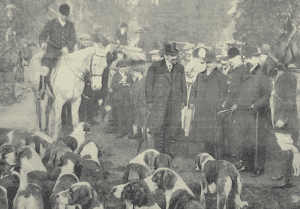
At New Year 1913 peace delegates from the London Peace Conference of 1912-13 witnessed the Boxing Day hunt at the Burford Bridge Hotel. The Conference sought to settle territorial claims after the successes of the Balkan armies in defeat of the Ottoman Empire in the First Balkan War. Delegates attended from the six major powers (Britain, France, Italy, Russia, Germany and Austria-Hungary), all in pursuit of their own territorial and diplomatic aims. The Bulgarian and Serbian delegates stayed with Cuthbert Heath at Anstie Grange. A year and a half later it was the volatile situation in the Balkans that was to tip Europe into war.
Next : The Week Before the War

